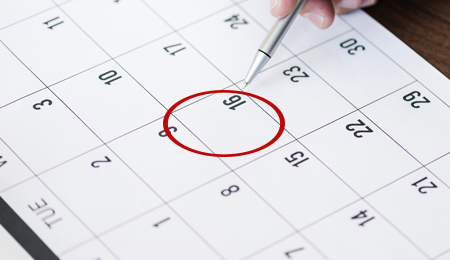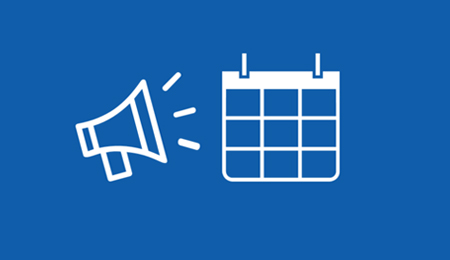Reducing caffeine for treatment of arrhythmias - myth or evidence-based medicine?
| Take Home Messages |
|---|
|
Introduction
Cardiac arrhythmias are frequently encountered in isolation or associated with other conditions (eg. hyperthyroidism, sepsis, myocardial infarction, cardiac surgery). The term encompasses a range of disorders from benign premature atrial or ventricular complexes to malignant tachycardias such as ventricular tachycardia or fibrillation. In clinical practice, patients with a suspected or confirmed diagnosis of cardiac arrhythmia are often advised to limit their intake of caffeine, which can be an important source of enjoyment and have significant impact on their overall quality of life. Furthermore patients are exposed to news headlines such as “Teen dies from too much caffeine, coroner says.”(1) In this review, we will explore the association between caffeine intake and arrhythmias to evaluate whether providing such advice is truly justified.
Discussion
Caffeine is a methylxanthine compound related to theophylline that is able to stimulate the sympathetic nervous system through a variety of different mechanisms. Its effects include non-selective competitive antagonism of adenosine receptors that are responsible for cardiovascular regulation and increasing cytosolic calcium concentrations by blocking reuptake of calcium into the sarcoplasmic reticulum.(2)
The caffeine content in standard beverages is summarised in Table 1.(3,4)
| Drinks | Caffeine content (mg) |
|---|---|
| Starbucks Hot Chocolate | 25 |
| Green tea | 29 |
| Coca-Cola | 34 |
| Black tea | 47 |
| Instant coffee | 57 |
| Red Bull energy drink | 76 |
| Shot of espresso | 77 |
| Nespresso capsule - except Kazaar | 50 - 80 |
| Starbucks - Caffe Latte or Cappuccino | 150 |
| Monster energy drink | 160 |
| Brewed coffee | 163 |
Table 1. Caffeine content in beverages
Previous studies have demonstrated that very high doses of caffeine in animals increased susceptibility to both supraventricular and ventricular arrhythmias.(5–7)
However, the results from human trials are less convincing with many studies showing no increase in arrhythmia burden or symptoms despite high doses of caffeine.(8–16) Some of these negative studies included patients with known arrhythmias(12,14,16), reduced ejection fraction heart failure(8) and recent myocardial infarction.(17) One large epidemiological study did show increased incidence of ventricular premature beats with caffeine. However, it was performed almost 4 decades ago and the association was found only in patients who ingested very high doses of caffeine (≥9 cups of coffee per day).(18) Studies demonstrating a lower risk of arrhythmias with caffeine are sparse. A recent study of 1,475 healthy patients found a lower incidence of atrial fibrillation with caffeine intake of >320mg per day.(19) A summary of published trials can be found in Table 2.
| Study | Year | n | Findings |
|---|---|---|---|
| No increased risk with caffeine | |||
| Zuchinali et al (8) | 2016 | 51 | No increase in arrhythmias with ingestion of 500mg caffeine in patients with reduced ejection fraction heart failure |
| Conen et al (9) | 2010 | 33,638 | No increased risk of AF in healthy females |
| Frost et al (10) | 2005 | 47,949 | No increased risk of AF or atrial flutter in healthy patients |
| Newby et al (11) | 1996 | 13 | No change in symptoms or frequency of VPB with caffeine restriction in patients with symptomatic idiopathic VPBs |
| Chelsky et al (12) | 1990 | 22 | No increase in inducibility or severity of arrhythmias in patients with previous ventricular arrhythmias |
| Myers et al (13) | 1990 | 35 | No increase in ventricular arrhythmias with ingestion of 450mg caffeine in recent MI patients |
| Graboys et al (14) | 1989 | 50 | No increase in arrhythmias with ingestion of 200mg caffeine during stress test in patients with malignant arrhythmias |
| Newcombe et al (15) | 1988 | 18 | No increase in arrhythmias with ingestion of 1mg/kg caffeine every 30 minutes during all waking hours in healthy patients |
| Myers et al (17) | 1987 | 70 | No increase in frequency or severity of ventricular arrhythmias with ingestion of 300mg caffeine in recent MI patients |
| DeBacker et al (20) | 1979 | 81 | No decrease in VPB frequency with abstinence from caffeine in healthy males |
| Clee et al (16) | 1979 | 50 | No increase in dysarrhythmias with caffeine ingestion in elderly patients (>60 years old) with a high incidence of ectopic beats, supraventricular tachycardia and sinus arrest |
| Increased risk with caffeine | |||
| Sutherland et al (21) | 1985 | 18 | Increased frequency of VPB with ingestion of 1mg/kg caffeine in patients with frequent VPB at baseline |
| Prineas et al (18) | 1980 | 7311 | Ingestion of ≥9 cups of coffee per day is associated with 2x the prevalence of VPBs, compared to ≤2 cups of coffee per day in healthy patients |
| Lower risk with caffeine | |||
| Casiglia et al (19) | 2018 | 1475 | Lower incidence of AF with higher caffeine intake (>320mg per day) in healthy patients |
Table 2. Studies evaluating the effects of caffeine on arrhythmias. AF = atrial fibrillation; VPB = ventricular premature beats; MI = myocardial infarction
The European Society of Cardiology (ESC)(22,23) and American College of Cardiology/American Heart Association/Heart Rhythm Society (ACC/AHA/HRS)(24) guidelines for supraventricular and ventricular arrhythmias do suggest that patients should be advised to avoid stimulants such as caffeine. However, this is in the context of benign arrhythmias only, with no references provided.
With conflicting results from several studies, it is not surprising that physicians may choose to remain cautious and advise at-risk patients to reduce their caffeine intake. However, as with all clinical decisions, the patient’s views should be respected and any envisaged benefits should be balanced against potential impact to their quality of life. Additionally, it should be done in light of current available evidence that do not suggest an increased risk of arrhythmias with caffeine. However, there may remain a minority of patients who exhibit a clear relationship between arrhythmia onset and burden with caffeine intake. In such patients, it would seem appropriate to avoid caffeine.
Conclusion
Overall the evidence do not suggest that reducing or avoiding caffeine intake will reduce the risk of arrhythmias.
References
- Lynch J, Goldschmidt D. Teen dies from too much caffeine, coroner says. CNN Health [Internet]. 2017; Available from: https://edition.cnn.com/2017/05/15/health/teen-death-caffeine/index.html
- Glatter KA, Myers R, Chiamvimonvat N. Recommendations regarding dietary intake and caffeine and alcohol consumption in patients with cardiac arrhythmias: what do you tell your patients to do or not to do? Curr Treat Options Cardiovasc Med. 2012 Oct;14(5):529–35.
- Hull M. How much caffeine is in popular drinks? [Internet]. [cited 2019 Jan 12]. Available from: https://examine.com/nutrition/caffeine-consumption/
- Interest C for S in P. Caffeine Chart [Internet]. 2018 [cited 2019 Jan 12]. Available from: https://cspinet.org/eating-healthy/ingredients-of-concern/caffeine-chart
- Ishida S, Ito M, Takahashi N, Fujino T, Akimitsu T, Saikawa T. Caffeine induces ventricular tachyarrhythmias possibly due to triggered activity in rabbits in vivo. Jpn Circ J. 1996 Mar;60(3):157–65.
- Mehta A, Jain AC, Mehta MC, Billie M. Caffeine and cardiac arrhythmias. An experimental study in dogs with review of literature. Acta Cardiol. 1997;52(3):273–83.
- Bellet S, Horstmann E, Roman LR, DeGuzman NT, Kostis JB. Effect of caffeine on the ventricular fibrillation threshold in normal dogs and dogs with acute myocardial infarction. Am Heart J. 1972 Aug;84(2):215–27.
- Zuchinali P, Souza GC, Pimentel M, Chemello D, Zimerman A, Giaretta V, et al. Short-term Effects of High-Dose Caffeine on Cardiac Arrhythmias in Patients With Heart Failure: A Randomized Clinical Trial. JAMA Intern Med. 2016 Dec;176(12):1752–9.
- Conen D, Chiuve SE, Everett BM, Zhang SM, Buring JE, Albert CM. Caffeine consumption and incident atrial fibrillation in women. Am J Clin Nutr. 2010 Sep;92(3):509–14
- Frost L, Vestergaard P. Caffeine and risk of atrial fibrillation or flutter: the Danish Diet, Cancer, and Health Study. Am J Clin Nutr. 2005 Mar;81(3):578–82.
- Newby DE, Neilson JM, Jarvie DR, Boon NA. Caffeine restriction has no role in the management of patients with symptomatic idiopathic ventricular premature beats. Heart. 1996 Oct;76(4):355–7.
- Chelsky LB, Cutler JE, Griffith K, Kron J, McClelland JH, McAnulty JH. Caffeine and ventricular arrhythmias. An electrophysiological approach. JAMA. 1990 Nov;264(17):2236–40.
- Myers MG, Harris L. High dose caffeine and ventricular arrhythmias. Can J Cardiol. 1990 Apr;6(3):95–8
- Graboys TB, Blatt CM, Lown B. The effect of caffeine on ventricular ectopic activity in patients with malignant ventricular arrhythmia. Arch Intern Med. 1989 Mar;149(3):637–9.
- Newcombe PF, Renton KW, Rautaharju PM, Spencer CA, Montague TJ. High-dose caffeine and cardiac rate and rhythm in normal subjects. Chest. 1988 Jul;94(1):90–4.
- Clee MD, Smith N, McNeill GP, Wright DS. Dysrhythmias in apparently healthy elderly subjects. Age Ageing. 1979 Aug;8(3):173–6.
- Myers MG, Harris L, Leenen FH, Grant DM. Caffeine as a possible cause of ventricular arrhythmias during the healing phase of acute myocardial infarction. Am J Cardiol. 1987 May;59(12):1024–8.
- Prineas RJ, Jacobs DRJ, Crow RS, Blackburn H. Coffee, tea and VPB. J Chronic Dis. 1980;33(2):67–72.
- Casiglia E, Tikhonoff V, Albertini F, Gasparotti F, Mazza A, Montagnana M, et al. Caffeine intake reduces incident atrial fibrillation at a population level. Eur J Prev Cardiol. 2018 Jul;25(10):1055–62.
- DeBacker G, Jacobs D, Prineas R, Crow R, Vilandre J, Kennedy H, et al. Ventricular premature contractions: a randomized non-drug intervention trial in normal men. Circulation. 1979 Apr;59(4):762–9.
- Sutherland DJ, McPherson DD, Renton KW, Spencer CA, Montague TJ. The effect of caffeine on cardiac rate, rhythm, and ventricular repolarization. Analysis of 18 normal subjects and 18 patients with primary ventricular dysrhythmia. Chest. 1985 Mar;87(3):319–24.
- Priori SG, Blomstrom-Lundqvist C, Mazzanti A, Blom N, Borggrefe M, Camm J, et al. 2015 ESC Guidelines for the management of patients with ventricular arrhythmias and the prevention of sudden cardiac death: The Task Force for the Management of Patients with Ventricular Arrhythmias and the Prevention of Sudden Cardiac Death of the Europe. Eur Heart J. 2015 Nov;36(41):2793–867.
- Blomstrom-Lundqvist C, Scheinman MM, Aliot EM, Alpert JS, Calkins H, Camm AJ, et al. ACC/AHA/ESC guidelines for the management of patients with supraventricular arrhythmias--executive summary: a report of the American College of Cardiology/American Heart Association Task Force on Practice Guidelines and the European Society of Cardiology . Circulation. 2003 Oct;108(15):1871–909.
- Page RL, Joglar JA, Caldwell MA, Calkins H, Conti JB, Deal BJ, et al. 2015 ACC/AHA/HRS Guideline for the Management of Adult Patients With Supraventricular Tachycardia: Executive Summary: A Report of the American College of Cardiology/American Heart Association Task Force on Clinical Practice Guidelines and the Heart Rhythm. Circulation. 2016 Apr;133(14):e471-505.
Community Events Calendar


